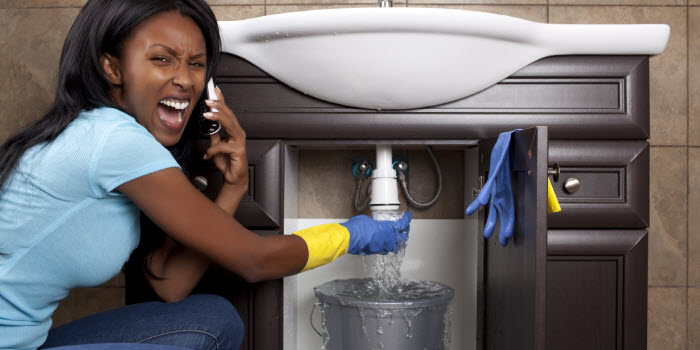Plumbing emergencies can be a nightmare to deal with, but with regular preventative maintenance, you can avoid them. Don’t let the thought of having to call a plumber scare you away from doing regular maintenance checks.
It’s easy and doesn’t take much time. All you need to do is inspect your pipes, know where your water shut-off valve is, check for leaks and cracks, and clean and maintain your drains.
You’ll be on your way to avoiding plumbing emergencies in no time.
Inspect Your Pipes Regularly
Regularly inspecting your pipes is key to avoiding plumbing catastrophes, so don’t forget to take a look every now and then!
The best way to do this is to inspect them at least once a month. Start by examining the exposed pipes, checking for any cracks, leaks, or other signs of wear and tear. If you spot anything, you should call a professional immediately.
It’s also important to check your faucets and fixtures for any leaking or worn-out parts. If you notice any problems, make sure to replace the parts as soon as possible.
You should also make sure to check for any blockages or clogs in your pipes. This can be done by running water through the pipes and listening for any unusual sounds. If you detect any blockages, you should call a plumber to resolve the issue.
Taking the time to inspect your pipes regularly is key to avoiding plumbing emergencies.
Know Where Your Water Shutoff Valve Is
Locating your water shutoff valve is essential–you never know when you’ll need to act fast to prevent a costly mess. Knowing the location of this valve is the first step in protecting your home from plumbing emergencies.
This valve is typically located in the basement or main level of your home, in an area where you can easily access it in an emergency. Make sure to familiarize yourself with the location of this valve, so that you’re prepared in case of an emergency.
It’s also important to periodically check your water shutoff valve to ensure it’s in working order. Make sure it’s not stuck in the open position, and that it can be turned off when necessary. If you’re ever in doubt, call a professional plumber to inspect the valve and make sure it’s functioning properly.
Taking these steps will help you avoid plumbing emergencies and protect your home from costly damages.
Check for Leaks and Cracks
Inspect your pipes and fixtures to ensure there aren’t any cracks or leaks that could cause you a major headache. Leaks can go unnoticed for long periods of time, resulting in costly repairs and even water damage.
Make sure you check for leaks and cracks regularly. You should keep a close eye on your pipes, especially in areas where they’re exposed, like your basement or crawlspace. It’s also important to check the fixtures connected to your plumbing system, like your toilet, sink, shower, and bathtub.
If you notice any water pooling around your fixtures, that’s a sure sign of a leak. Even if there aren’t any visible signs of a leak, you should check for any moisture buildup or water stains, as these can be early indicators of a leak.
Additionally, you should check for any cracks in your pipes, as these can lead to major water damage if left untreated. Taking the time to regularly check for any leaks or cracks can help you avoid a plumbing emergency.
Clean and Maintain Your Drains
Keep your drains clean and running smoothly by regularly removing debris and other build-up. To do this, pour a cup of baking soda down the drain and follow it with a cup of white vinegar. Let the mixture sit for fifteen minutes before running hot water down the drain. This will help to break down any residue and kill any bacteria.
It’s important to periodically use a drain snake or auger to remove any clogs that may be present. This should be done at least once every few months to prevent any buildup of debris from causing a blockage.
Additionally, consider pouring boiling water down your drains every few weeks to help break up any grease or soap scum. Doing this regularly will help keep your drains in good working condition and prevent any plumbing emergencies from occurring.

Leave a Reply